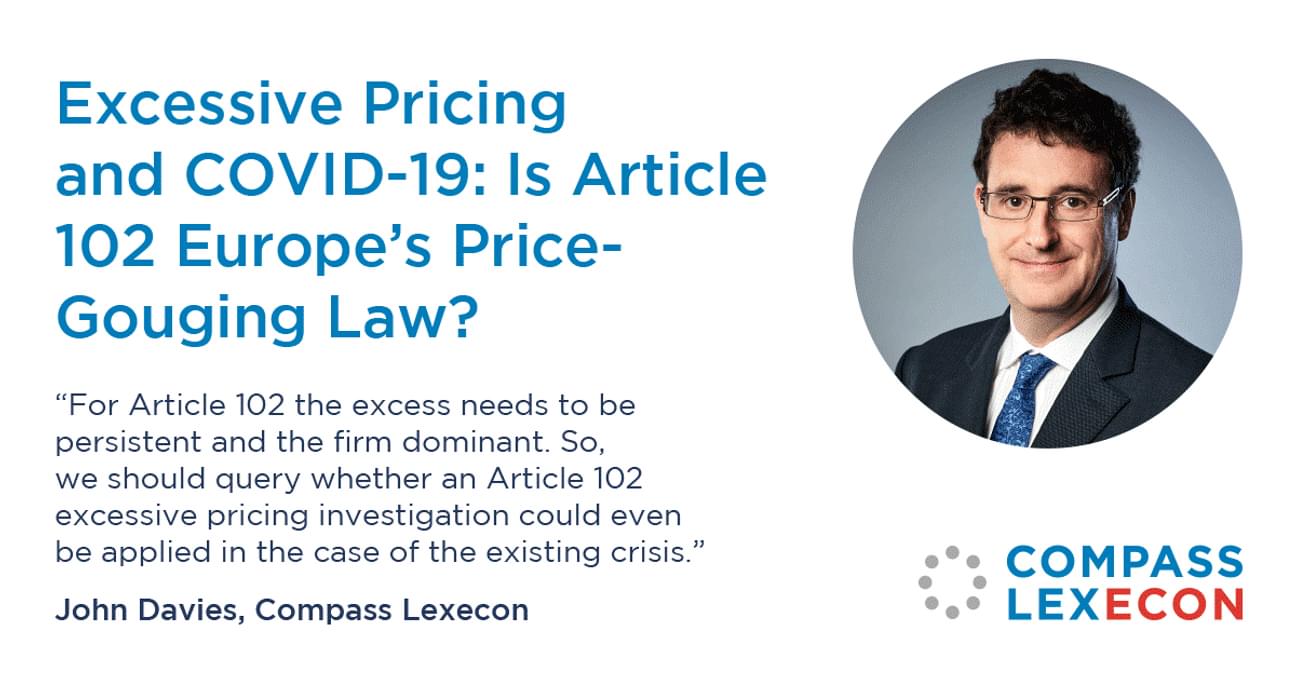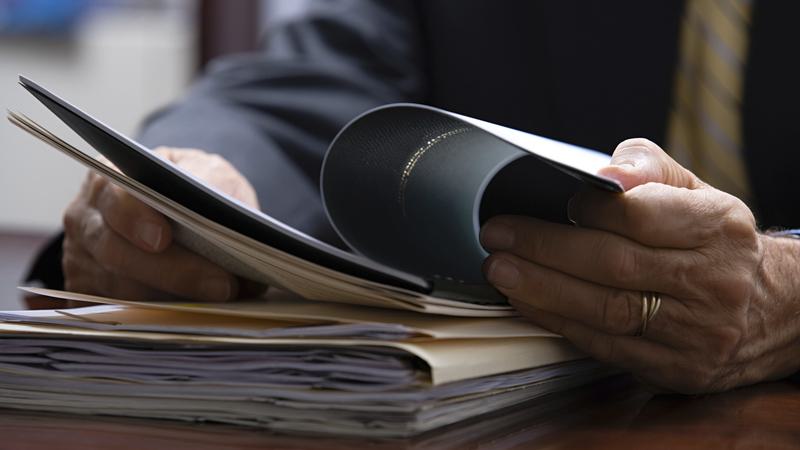Excessive Pricing and COVID-19: Is Article 102 Europe’s Price-Gouging Law?

Share
The European Commission has said that it would take action against “anti-competitive price increases” during the COVID-19 crisis. This presumably refers to excessive pricing and exploitative abuses under Article 102.
Economist John Davies argues that a price increase does not itself harm competition: high prices, especially short-term ones, usually perform a valuable role managing supply and demand and longer term periods of high prices will promote innovation. Nonetheless, social considerations are very likely to require competition authorities visibly to take action. Economists should not be too purist about this: the public will expect action against perceived profiteering on the back of a health crisis. A failure to act causing a loss of trust in institutions can lead to very bad economic outcomes.
However, Article 102 is unlikely to be the right tool. The company that increases its prices must be dominant, and the case law requires that the excess be “persistent”. In fact, most of the complaints reported by competition and consumer authorities relate to short-term price rises by very small players – for example, resellers on online marketplaces who have bought masks or other protective equipment and are selling them on at much higher prices.
John stated that it is likely that competition authorities will indeed launch Article 102 (or national equivalent) excessive pricing cases as a result of this crisis, but warned that they might come to regret it, as recent experience shows that such cases are neither quick nor easy to prove. In Europe, especially, there are regulatory powers in the health sector and even for unregulated products, the buyer power of State health providers is likely to be a more effective tool to act against perceived price abuses.
John Davies gave an economist’s view in a webinar on “Antitrust: Price Fixing, Excessive Prices, Crisis Cartel”, chaired by Frédéric Jenny (Chair of the OECD Competition Committee), with Luc Gyselen (Partner, Arnold & Porter) and Jérôme Philippe (Partner, Freshfields) joining as speakers. The webinar was organized by Concurrences with 50% of the proceeds going to Doctors Without Borders, supporting people affected by the COVID-19 crisis.
Read the full synopsis and transcript


